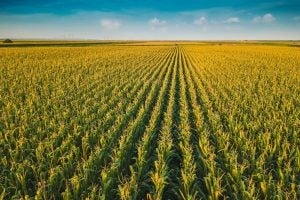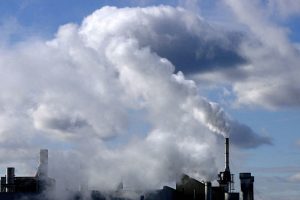 March 25, 2024
by Alexis Gorfine
Climate change
State and Local
Sustainability
March 25, 2024
by Alexis Gorfine
Climate change
State and Local
Sustainability
The healthiest and happiest communities are walkable, bikeable, and provide equitable transportation options for all. D.C. policymakers must put cars in their place and take steps to promote pedestrian safety. By slowing down drivers, improving infrastructure to promote pedestrian awareness, and encouraging mass transit alternatives, we can make our city more friendly to both the environment and its habitants, workers, and visitors.
 March 21, 2024
by Damon Hays
Agriculture
Climate change
Natural Resources
Regulations
Renewable Energy
Sustainability
March 21, 2024
by Damon Hays
Agriculture
Climate change
Natural Resources
Regulations
Renewable Energy
Sustainability
The current impasse over the nation's premier agriculture legislation is one that reflects the competing interests of modern food production practices and climate change mitigation efforts.
 March 7, 2024
by Kayla Minton Kaufman
Climate change
Public Lands
State and Local
March 7, 2024
by Kayla Minton Kaufman
Climate change
Public Lands
State and Local
Climate change and the legal punishment of homelessness together create intersecting hazards. Homelessness, therefore, is a community issue and an environmental issue.
 March 1, 2024
by Kennedy Pivnick
Climate change
International
Sustainability
March 1, 2024
by Kennedy Pivnick
Climate change
International
Sustainability
Aligning trade policies with environmental objectives is imperative to efforts to address the mounting global climate crisis. The Villars Framework offers a groundbreaking approach to environmentally-conscious trade policy.
 February 23, 2024
by Diego Huerta
Air
Climate change
Fossil Fuels
Regulations
State and Local
February 23, 2024
by Diego Huerta
Air
Climate change
Fossil Fuels
Regulations
State and Local
Massachusetts v. EPA is seen as an unalloyed victory for the climate movement, but over 15 years after the case was handed down, legal knock-on effects from the decision have come back to bite.
 February 23, 2024
by Paige Power Kendrick
Air
Climate change
Fossil Fuels
Regulations
February 23, 2024
by Paige Power Kendrick
Air
Climate change
Fossil Fuels
Regulations
In the hope to leave Zombie Engines in the past, the EPA recently promulgated a new final rule on Greenhouse Gas Emissions Standards for Heavy-Duty Vehicles. In this GELR blog post, Paige Kendrick analyzes the recent changes regarding federal preemption of non-new locomotives and locomotive engines as well as steps being taken by California to reduce locomotive emissions.
 February 13, 2024
by Roman Carlitti
Climate change
Fossil Fuels
Renewable Energy
February 13, 2024
by Roman Carlitti
Climate change
Fossil Fuels
Renewable Energy
USPS’ decade-long effort to replace its antiquated vehicle fleet is threatened to be further delayed by multiple pending lawsuits challenging the agency’s compliance with NEPA.
 February 8, 2024
by Nicholas Alois
Climate change
Regulations
State and Local
February 8, 2024
by Nicholas Alois
Climate change
Regulations
State and Local
Last summer, Ludlow, Vermont, experienced devasting flooding after several inches of rain fell in the area in one day. In this article, Nicholas Alois discusses the flood’s impact on the community, the long rebuild process, and recommended flood prevention and mitigation efforts moving forward.
 February 7, 2024
by Andrew Lloyd Bellah
Climate change
Regulations
February 7, 2024
by Andrew Lloyd Bellah
Climate change
Regulations
Proposed changes to regulations affecting banks in the United States could potentially jeopardize wind, solar and other renewable energy projects that have relied on tax-equity financing to get off the ground, drawing criticism to regulators charged with the long-term stability of the financial system. The proposed rules, which require banks to hold greater reserves against direct investments in clean energy projects, play into a broader debate over whether a transition to sustainable energy and mitigating the existential risk of climate change fall within the purview of the Fed and other financial regulators.
 February 1, 2024
by Samantha Cristol
Climate change
Sustainability
February 1, 2024
by Samantha Cristol
Climate change
Sustainability
The construction industry has a complicated relationship with climate change. This post examines how legal tools can be used to simultaneously encourage emissions reduction and increase community resilience.











